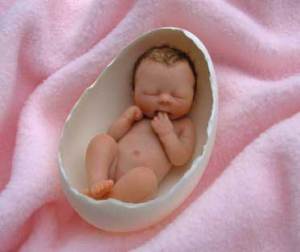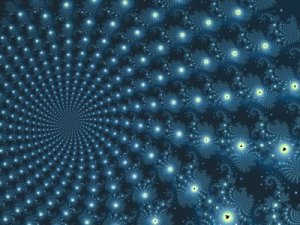Heidekolb's Blog
Whatever happened to Psychotherapy? – A Jungian Rant
7 Comments
What did happen to psychotherapy? The word alone can send unpleasant shivers down the spine of some and evoke images of state regulated symptom control in order to increase “evidenced based” productivity in the workforce and compliance with societal norms. It sounds sickening, but is true. We have created a narrow path of what is considered “good mental health” and in the process marginalized large numbers of people who do not fit the established criteria. Is psychotherapy supposed to be that? It is certainly not what I had in mind when I entered the field. And I would like to believe that the founders of modern psychotherapy from Freud to Jung, would be, maybe not surprised, but still abhorred by what psychotherapy has become nowadays, particular in institutional settings.
Psyche means soul and psychology is the science of the soul, while our word therapy derives from the Greek therapeia, which means healing. The Greek myth of Psyche talks about her suffering, not because she is “ill” but her suffering being an unavoidable “symptom” of her journey towards union with her love Eros and ultimately on her journey towards immortality.  By learning to love and by enduring the pain associated with it we transcend our physical limitations.
By learning to love and by enduring the pain associated with it we transcend our physical limitations.
Looked at from this perspective we are all in need of healing and guidance. It removes the prevalent and stigmatizing divide between the “healthy” and the “ill”. Our current definition of “mental health” causes more harm than help. It terrorizes the soul. The truth is we are all in the same boat. We may have different life stories and we may be at different stages of psychic development, but we all participate in the same divine drama of becoming conscious of who we are, which may be just another way of stating our movement towards immortality.
Therapists of the Jungian persuasion appreciate the soul. We are stewards for psyche. We cannot serve two masters. We cannot serve the collective and psyche at the same time. When Jung developed his idea of “individuation”, he understood that an individual following his true calling may be taken far from collective values and expectations. To walk one’s own path may at times take one even far from what is considered “good mental health”. If you have not ventured into the darkest recesses of your soul, no treasure shall ever be yours.
But we therapists must not fall into the deadly trap of believing that we facilitate a healing or that we have the capacity to guide a patient’s psyche. That would be a fatal inflation. What we can, in fact, what we must do is twofold. For one, we must provide a safe space, a container for the work to occur and we must develop eyes to see the energetic shifts and battles fought out in this space. We can hope, maybe even pray that the true guide of souls, Hermes, shows up and guides the work.
This necessary safe space is not unlike the alchemical vessel. It is both an actual physical location, as well as an imaginal space. It is the field created between therapist and patient. We can imagine this field as a crucible, an open vessel. This kind of soul work is not counceling. We do not give advice. On the imaginal level it is a relationship between two equals. The sparks and darts (transference) will fly back and forth. It will get heated. The imaginal vessel needs an opening for toxic vapors (emotions) to be released.  A therapist will begin to “see” the circulating energy as old contents are broken down, bottomless despair is mutually suffered and only then, with grace, a new content in the form of an unexpected thought, an image, a dream will present itself.
A therapist will begin to “see” the circulating energy as old contents are broken down, bottomless despair is mutually suffered and only then, with grace, a new content in the form of an unexpected thought, an image, a dream will present itself.
At other times the vessel of soul work needs to be imagined as hermetically sealed. When new life needs to be protected. This could be when the therapist senses, “sees” the shimmer of a newly emerging attitude in the patient. Often before the patient has any awareness of it or is unwilling to imbue it with any energy.  Just like a plant needs water and light, a barely present new psychic attitude needs to be watered with feeling and fed with the energy of intent.
Just like a plant needs water and light, a barely present new psychic attitude needs to be watered with feeling and fed with the energy of intent.
All too often have the inner workings of the therapy vessel been forgotten. What has survived are the outer manifestations of confidentiality and the code of ethics to protect the patient. Both are crucial aspects of therapeutic work, but without an eye for the drama lived out in the imaginal space of therapeutic work, soul is abandoned one more time again. So you psychotherapists out there, in whose service are you?
Tags: alchemical vessel, alchemy, C.G. Jung, dream, eros, Freud, Greek myth Psyche and Eros, Hermes, mental health, mental illness, psyche, psychotherapy
Psychosis Revisited-In Defense of Madness – The Red Book Reflections, C.G.Jung
7 Comments
 Psychosis is the great other in Western civilization. Insanity, craziness, off-the-wallness is what frightens us the most. And for good reason, for one it is terrifying. And if that were not enough, we also run the risk of being immediately (over)medicated, hospitalized and stigmatized with that awful descriptive of having a “mental illness”. To be fair, there are of course psyches that are so fragile that they are hopelessly and helplessly flooded by what Jung refers to in the Red Book (RB) as the spirit of the depth. Much of this individual suffering can be alleviated by proper medication and designated caring environments. The psychiatric wards of most hospitals these days are not “caring environments”, but the problem is a systemic one and generally not the fault of the well intentioned but overworked and misinformed personnel of these wards. But the needs of this relatively small group of the population are not what I am addressing here. I am talking about you and me. The chances are that if you are reading this, you qualify for this much larger segment of the population, the reasonably well functioning average neurotic. What we generally deny is that we also have psychotic pockets in some of the more hidden corners of our psyche. Often a source of great fear and shame, these raw, uncontrollable spots in our inner landscape may also connect us to a divine, transpersonal reality.
Psychosis is the great other in Western civilization. Insanity, craziness, off-the-wallness is what frightens us the most. And for good reason, for one it is terrifying. And if that were not enough, we also run the risk of being immediately (over)medicated, hospitalized and stigmatized with that awful descriptive of having a “mental illness”. To be fair, there are of course psyches that are so fragile that they are hopelessly and helplessly flooded by what Jung refers to in the Red Book (RB) as the spirit of the depth. Much of this individual suffering can be alleviated by proper medication and designated caring environments. The psychiatric wards of most hospitals these days are not “caring environments”, but the problem is a systemic one and generally not the fault of the well intentioned but overworked and misinformed personnel of these wards. But the needs of this relatively small group of the population are not what I am addressing here. I am talking about you and me. The chances are that if you are reading this, you qualify for this much larger segment of the population, the reasonably well functioning average neurotic. What we generally deny is that we also have psychotic pockets in some of the more hidden corners of our psyche. Often a source of great fear and shame, these raw, uncontrollable spots in our inner landscape may also connect us to a divine, transpersonal reality.
A good working definition of psychosis is that the boundaries between inner and outer world have become blurry or non-existent. Remember the last time you completely lost it? Had a melt-down? Were so caught up in a personal complex that outer reality became skewed? This is where the other side begins. No problem as long as you can bounce back. The ability to recuperate from a moment, or days, or weeks, or even years of insanity is the real marker for psychic health and not having no knowledge of madness and therefore seeing (projecting) it only onto others. “It is unquestionable: if you enter into the world of the soul, you are like a madman, and a doctor would consider you to be sick”, Jung writes in the RB.
“I am seized by fear, but I know I must go in” he says, “the spirit of the depths opened my eyes and I caught a glimpse of the inner things, the world of my soul, the many-formed and changing”. The descent into the depths can be maddening and dangerous, but what is remarkable is that Jung also sees a form of madness looming when a person never leaves the surface. In other words, when a person is entirely identified with waking life and ego consciousness. In Jung’s words, “the spirit of this time is ungodly, the spirit of the depths is ungodly, balance is godly”. There is great wisdom in these three words, “balance is godly”. There is a time to be lost and there is a time to find oneself again. We fall apart and we are put together again. We breathe in and we breathe out. To accept the good and the bad. Life and death. Each cycle leaving us slightly changed. The secret of transformation lies in moving to this rhythm, consciously. “Depth and surface should mix so that new life can develop”, Jung writes.
Consciousness is related to awareness, but also to meaning. Without finding meaning in events, especially in our mad episodes, whether they take the form of a suicidal depression, a panic attack or an outburst worth a wrathful god, no light, no consciousness can be wrested out of it. “The meaning of events is the way of salvation that you create”, Jung writes.
The editor of the RB, Sonu Shamdasani, remarks in a footnote that what Jung is developing here in the Liber Primus is the connection between individual and collective psychology. What that means is that if we, as Jung did, look inward, give credence to our dreams, visions, fantasies and moods, when we dive into them versus running away, we will unavoidably come in contact with the forces of the collective unconscious and that can be terrifying and overwhelming. “My knowledge has a thousand voices, an army roaring like a lion, the air trembles when they speak, and I am their defenseless sacrifice”, Jung writes.
What is being sacrificed here? Jung suggests that it is our own head that needs to fall. Growth and new life are subjectively experienced as something most dreadful and even evil, like our own execution. “You thought you knew the abyss? Oh you clever people! It is another thing to experience it”, Jung writes. Our head is also sacrificed, when we let go of our judgment, when we accept experiences for what they are: expressions of the soul’s life regardless of how psychotic they might be. I know this is easier said than done, but Jung for one has walked the talk before us. The Red Book is proof, it can be done.

Tags: Analytical psychology, balance, C.G. Jung, collective unconscious, consciousness, depression, Depth Psychology, dreams, evil, Jungian psychology, madness, mental health, mental illness, panic attack, psyche, psychosis, Sonu Shamdasani, soul, The Red Book, transformation
Depression-What to make of the darker moods-A Jungian Perspective
Leave a Comment
Lately I have thought a lot about darkness. It seems timely as November feels like the darkest time of the year. It might be. But while darkness begins to wrap around us at an early hour, I see the familiar emphasis on light wherever I look. We all want to be in the light at all times and if we are not, move towards it as fast as possible. Darkness is the unwanted stepsister.
We experience darkness psychologically as depression, as the “hour of lead”, as the poet Emily Dickinson once wrote. A fitting image reflective of the heaviness, the stuckness and the dull, all consuming despair of depression. Why would anyone of sound mind find any value in the darker moods ?! Mainstream psychology seems to agree and focuses primarily on the eradication of symptoms via the help of pills, pills and more pills. Make no mistake, there is a place for medication in the treatment of depression, but I abhor the unquestioning carelessness with which our culture medicates its citizens, particularly its most vulnerable members, the poor and poorly educated.
But even the well-off are seduced by our culture’s one-sided infatuation with the lighter, more pleasant moods. It is so much easier to escape into substances or addictive behaviors. No joke, it is. Nonetheless, I argue that practioners of the healing arts need to rediscover the value of depression and the darker shades of being, because they are as much part of nature, our nature, as the darkness of November is in the cycle of a year.
I recently read that “you can’t discover light by analyzing the darkness”. This was written by an internationally best selling author and spiritual teacher. A very successful person and presumedly helpful to millions, but in this instance he simply did not get it right. But I can see why the message of tolerating difficult feelings and searching for meaning in the muck of one’s psyche is a much harder sell.
But is there a spark in the darkness? On a cosmic level, science has shown, literally, with the help of an x-ray observatory that a glow with the intensity of ten billion suns pours out of a black hole into the surrounding universe. For a long time scientists believed that no light beam could ever escape a black hole. They were wrong.
Is there meaning to be found in depression? More often than not there is. It might be helpful to differentiate the nature of the darker mood. Is the depression related to a loss that needs to be mourned? It could be the loss of a person or an abstract idea, such as the loss of youth or health, hopes, or the loss of the illusion that life is meant to be an uninterrupted state of happiness. Freud got it right when he said that our whole life is a process of mourning. Think about it, when you allow yourself to feel deeply into your being, are we not always mourning something or someone, even if we are simultaneously quite content and “happy” with our lives?
But there can be black holes in our psyche that can not be explained by insufficient mourning. When Saturn clutches the soul causing wounding and despair too much to bear. How tempting it is to abandon the soul to her suffering and find refuge in medication that quiets her screams. Jung descended into his own darkness/madness and brought forth the insights and techniques that today constitute the School of Analytical Psychology. We Jungians value the darkness. We know that only by bearing witness to suffering and by extracting meaning from it can a new morning dawn. Spring will follow winter, but in the middle of November there is no memory of that.
For those who are interested in a unique Jungian perspective on darkness and its psychological implications I have a wonderful book to recommend. “The Black Sun, the Alchemy and Art of Darkness” by Jungian analyst Stanton Marlan. It was in this book that I found the information on the discovery of light in the black holes. The book, like its subject matter, is illuminating the dark.
And with Emily Dickinson, wherever she is now, I would like to share that the old alchemists knew that the lead of Saturn holds a hidden promise. When made into a fine powder, it ignites all by itself. There is indeed a spark in the darkness of our depression.


 than what is represented by that terrible otherness of the psychopath that we feel we are no part of?
than what is represented by that terrible otherness of the psychopath that we feel we are no part of?
